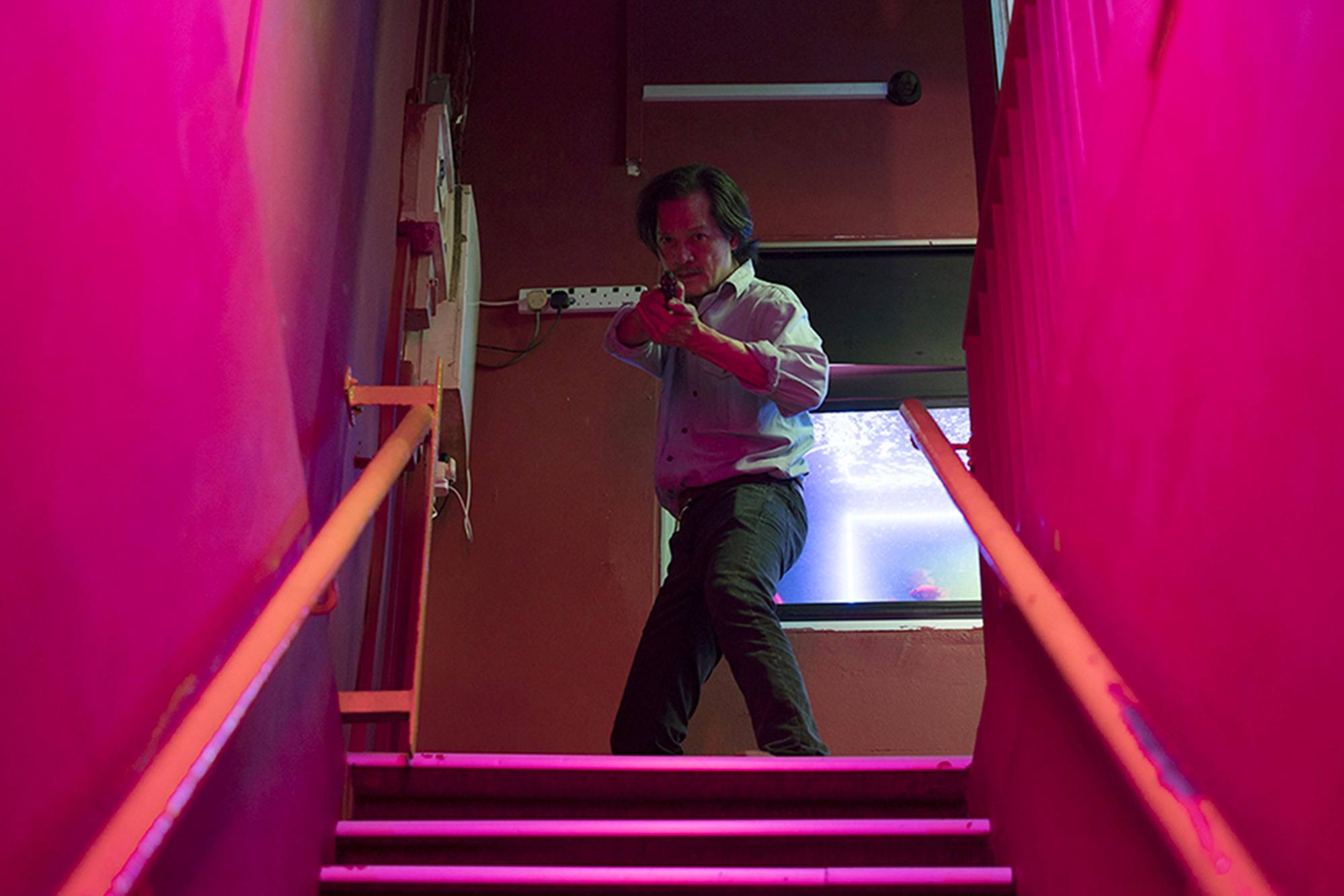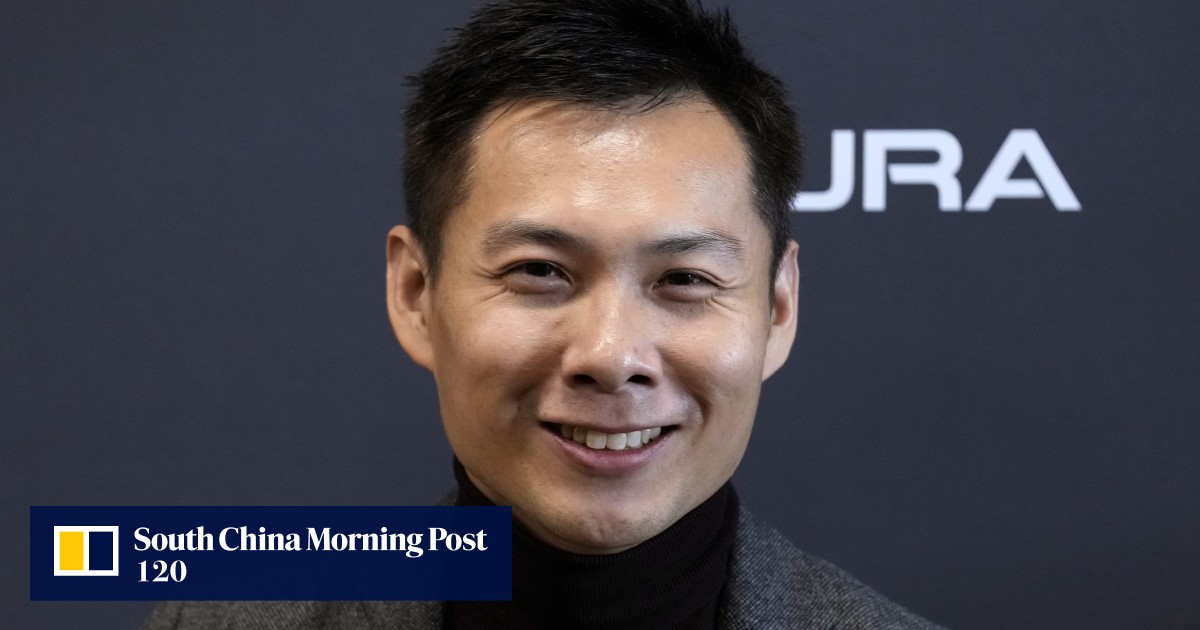The film finally premiered at the Sundance Film Festival in January this year.
Stuck at home, Chen pondered his identity as a filmmaker as he watched over his young son. “When you’re in a crisis like that, you always end up looking for some form of change or renewal,” he said.
In China, it’s lying flat. The US, gap years. Either way, things are changing
In China, it’s lying flat. The US, gap years. Either way, things are changing
“There was this collective melancholy you could sense, of young people feeling lost and stuck and tired,” Chen said.
“Maybe this resonated with me, because I felt a similar way.
“So I started making a film to capture that feeling.”
The result was The Breaking Ice, about three young people in the mountains of Yanji, in northern China, musing on the trajectory of their lives and their feelings for one another.
It made its debut at the Cannes Film Festival in May and Chen is currently on a press tour promoting the film in Europe. It opens in Hong Kong on November 9.
The film marked a shift in his creative process and style, Chen said. He introduced elements of magical realism – a departure from the social realism of his previous projects.
Another first was having a music score. “It gave the film a sense of adventure, it felt light and youthful and energetic, which is very different from my previous work,” he said.
“I knew I wouldn’t make the film in my home country Singapore, I would make it in China. And not a part of China I was familiar with, like Shanghai or Beijing. I went to northeast China, where I had never been before,” he said.
Generation gap
Making a film about young people was also something new for Chen, especially as he wrestled with understanding the younger generation and the whole concept of tang ping.
“I’m from a different generation, so I didn’t understand why they felt that way,” he said.
Raised in Singapore in the 1980s and 1990s, Chen said he grew up at a time when young people were told to be resilient in the face of hardship. There was no giving up or lying flat.
“The process of writing this script and making the film was about me trying to understand this generation,” he said.
If you’ve ever felt depressed or lonely or lost, I don’t think this film or any film can heal that … but I think there’s some peace in knowing that you’re not alone
Asked if it did help him understand the younger generation, Chen paused to think, then described one of his favourite scenes from the film.
The three friends are hiking up a mountain, and one of them, growing tired, lies down. The other two follow suit.
“They’re lying there in the snow, these beautiful mountains behind them, and I took away all the background music, so you just hear their breathing,” he said. “At that moment, it felt like they found some kind of peace.”
The scene underscores what he thinks young people may be trying to express with tang ping.
“If you’ve ever felt depressed or lonely or lost, I don’t think this film or any film can heal that,” he said. “But I think there’s some peace in knowing that you’re not alone, that somewhere someone out there is feeling the same.”
Full-circle moment
Chen relocated to Hong Kong from London – his home of 17 years – with his family in August last year for his wife Rachel Yan’s job as a risk analyst. Their son is now five years old.
Chen said Singapore cinema has grown from strength to strength in the last 15 years, with new films that are increasingly “perceptive, thoughtful and personal”.
“There is this new generation of very passionate filmmakers who have something to say about the issues of the day, about what it’s like to be Singaporean and the experience of living,” he said.
He cites Apprentice, which explores the issue of the death penalty and A Land Imagined, which focuses on land reclamation.

But what Singapore is missing, he said, is domestic support for home-grown films.
If Singapore wants to see more of its films break out globally, they must first enjoy greater success at the domestic box office.
“For a Singaporean movie to make a mark on the world, it has to be a national endeavour, or something everyone partakes in,” Chen said. “It can’t just rest on the shoulders of a few filmmakers”.
Otherwise, he said more filmmakers will feel the urge to leave the city and make films elsewhere.

“If people are not returning to cinemas to support local films, how are these films going to be sustainable, especially when they come from a small country like Singapore?” he said.
“It’s not like South Korea where there is already this cultural soft power in place, with K-pop music and dramas that are already highly exported around the world.”
As for the so-called wave of “Asian cinema” in recent years, Chen points out that it is primarily Asian-American stories, such as Crazy Rich Asians or Past Lives that are making a mark in the West.

“Yes, there is a sort of demand for Asian content, but it’s tied to certain specificity. I wouldn’t say that anything Asian sells,” he said.
“Even Hong Kong movies aren’t selling to the world any more, in the way that they were selling in the 90s and the 2000s.”
Chen credits his own success as a filmmaker to Ilo Ilo, which was awarded the Caméra d’Or for best debut feature at Cannes in 2013.
That year, he also won four Golden Horse Awards for the film, including best feature. It was the international recognition that really launched his career, he said.
Interview: film director Anthony Chen on his influences and passions
Interview: film director Anthony Chen on his influences and passions
In a full-circle moment 10 years after his big night at the ceremony, Chen will be on the final jury to choose the winners of the Golden Horse Awards on November 25 in Taipei.
And what’s next for the filmmaker?
“I’m actually working on a story set in Hong Kong,” he said. “There’s so much texture in this city, and I would love to capture it in my next film.”
Denial of responsibility! TechCodex is an automatic aggregator of the all world’s media. In each content, the hyperlink to the primary source is specified. All trademarks belong to their rightful owners, and all materials to their authors. For any complaint, please reach us at – [email protected]. We will take necessary action within 24 hours.
Khushi Patel is a science fiction author who lives in Austin, Texas. She has published three novels, and her work has been praised for its originality and imagination. Khushi is a graduate of Rice University, and she has worked as a software engineer. She is a member of the Science Fiction Writers of America, and her books have been nominated for several awards.


